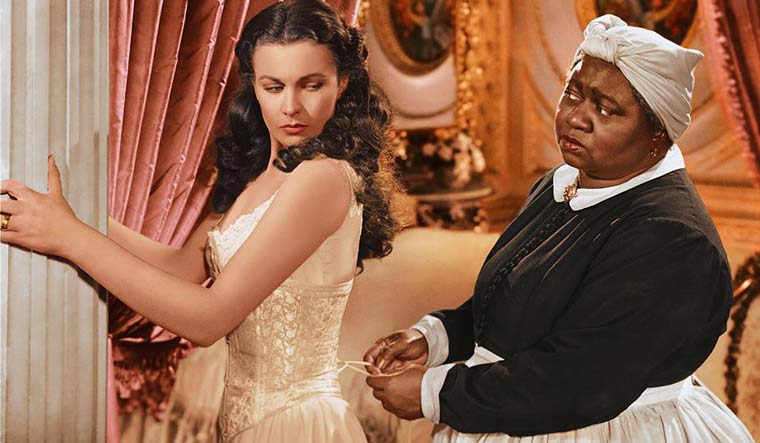The 1939 classic Gone With the Wind, one of the most celebrated movies of all times, has been removed from HBO Max over its depiction of “ethnic and racial prejudices” in the wake of raging protests triggered by the brutal murder of George Floyd.
A winner of multiple Academy Awards, Gone With the Wind, adapted from the 1936 novel by Margaret Mitchell, has often been criticised for its treatment of its black characters and portrayal of Civil War. The movie has black characters who remain loyal to their masters even after the abolition of slavery.
In a statement, HBO Max said, "Gone With The Wind is a product of its time and depicts some of the ethnic and racial prejudices that have, unfortunately, been commonplace in American society."
"These racist depictions were wrong then and are wrong today, and we felt that to keep this title up without an explanation and a denouncement of those depictions would be irresponsible. These depictions are certainly counter to Warner Media’s values," the statement further said, according to media reports.
The decision of HBO Max comes a day after screen writer and actor John Ridley, who wrote 12 Years a Slave, penned a column in Los Angels Times, titled 'Hey, HBO, ‘Gone With the Wind’ romanticizes the horrors of slavery. Take it off your platform for now.'
"Gone With the Wind,” however, is its own unique problem. It doesn’t just “fall short” with regard to representation. It is a film that glorifies the antebellum south. It is a film that, when it is not ignoring the horrors of slavery, pauses only to perpetuate some of the most painful stereotypes of people of color," Ridley had written in the column and demanded that "the film be re-introduced to the HBO Max platform along with other films that give a more broad-based and complete picture of what slavery and the Confederacy truly were. Or, perhaps it could be paired with conversations about narratives and why it’s important to have many voices sharing stories from different perspectives rather than merely those reinforcing the views of the prevailing culture."


